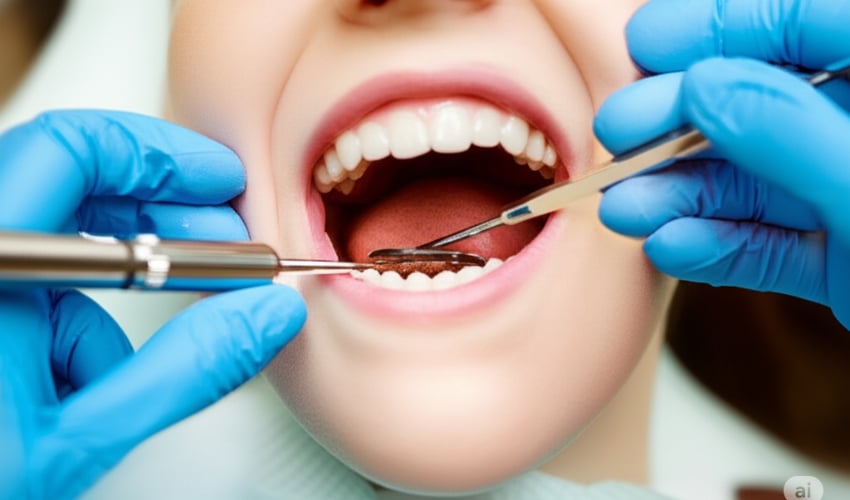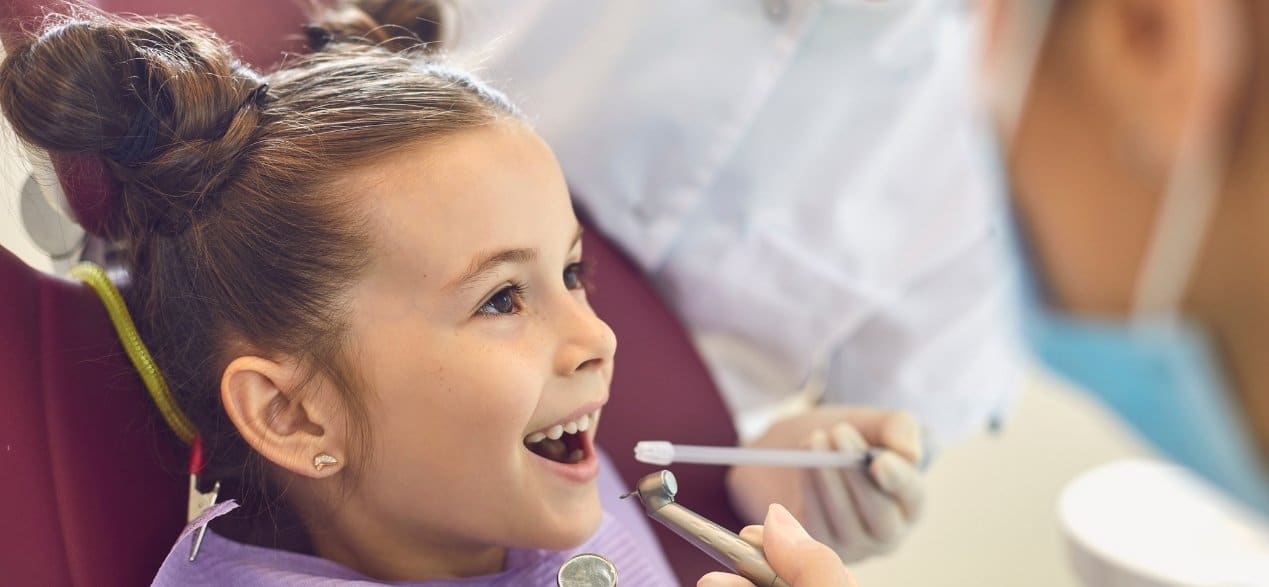SNORING? AIRWAY DYSFUNCTION? HEALTHYSTART™ CAN HELP. DOWNLOAD THE GUIDE
A Guide to Dental Care for Children with Autism


A Guide to Dental Care for Children with Autism
Children with autism spectrum disorder (ASD) often face unique challenges in various aspects of daily life, including oral health care. Navigating dental visits and oral hygiene routines can be particularly daunting for both children with autism and their caregivers. Understanding the specific needs and considerations in dental care for children with autism is essential for ensuring their oral health and overall well-being.
As a parent or caregiver, seeking dental care for your child with autism, finding a pediatric dentist who understands their unique needs is crucial. With the right support and guidance from a knowledgeable pediatric dentist in Tomball, TX, you can help your child overcome challenges and achieve optimal oral health outcomes.
In this blog, we will explore effective strategies and specialized approaches to dental care tailored specifically for children with autism. Read on to learn practical tips, specialized techniques, and valuable insights to empower you in providing the best possible dental care for your child with autism.
Understanding Autism and Oral Health
Autism’s Impact
Autism spectrum disorder (ASD) can influence oral health due to sensory sensitivities and behavioral challenges. Children with ASD may struggle with sensory inputs like bright lights, loud noises, or unfamiliar sensations in their mouths during dental visits.
Common Oral Health Issues
Dental anxiety is prevalent among children with autism, making dental appointments stressful. Additionally, challenges with fine motor skills and repetitive behaviors can hinder proper oral hygiene routines, leading to issues like plaque buildup, cavities, and gum disease. Understanding these challenges is crucial for providing effective dental care tailored to the individual needs of children with autism.
Challenges in Dental Care for Children with Autism
Communication Barriers: Children with autism may struggle with verbal communication, making it challenging for dental professionals to understand their needs and concerns during appointments. Non-verbal communication techniques, such as visual aids or simplified language, are often necessary to facilitate effective communication.
Sensory Issues: Sensory sensitivities can heighten anxiety and discomfort during dental visits for children with autism. Bright lights, loud noises, and unfamiliar sensations from dental instruments may trigger sensory overload, leading to distress. Dentists must create a sensory-friendly environment and use gentle techniques to minimize sensory triggers and ensure a more comfortable experience.
Specialized Approaches: Providing dental care for children with autism requires specialized approaches tailored to their unique needs. Pediatric dentists in Tomball, TX, trained in autism-friendly dentistry, employ techniques like desensitization, gradual exposure, and positive reinforcement to build trust and reduce anxiety during dental appointments. Collaborating with parents and caregivers to develop personalized care plans is essential for ensuring successful dental outcomes for children with autism.
Preparing for Dental Visits
- Social Stories: Create personalized social stories or visual narratives that depict the dental visit experience step-by-step, helping children with autism understand what to expect and reduce anxiety.
- Visual Schedules: Use visual schedules or picture schedules to outline the sequence of events during the dental appointment, providing structure and predictability for children with autism.
- Sensory-Friendly Strategies: Implement sensory-friendly strategies, such as providing noise-canceling headphones, weighted blankets, or chewable toys, to help children regulate their sensory experiences and stay calm during dental visits.
- Communication with Dental Professionals: Foster open communication between caregivers and a pediatric dentist in Tomball, TX, to share information about the child’s specific needs, preferences, and triggers. Collaboration ensures that dental professionals can tailor their approach to accommodate the child’s individual requirements, promoting a more comfortable and successful dental experience.
Maintaining Oral Hygiene at Home
- Consistent Routine: Establish a consistent oral hygiene routine that includes brushing teeth twice daily and flossing regularly. Consistency helps children with autism become familiar with the routine, reducing anxiety and resistance.
- Visual Supports: Utilize visual supports, such as visual schedules or picture prompts, to guide children through the oral hygiene routine. Visual aids enhance understanding and independence in completing oral care tasks.
- Sensory-Friendly Products: Choose sensory-friendly oral care products, such as soft-bristled toothbrushes, flavored toothpaste, and gentle flossers, to accommodate sensory sensitivities and preferences.
- Positive Reinforcement: Use positive reinforcement techniques, such as praise, rewards, or preferred activities, to motivate and encourage children during oral care activities. Positive experiences foster a sense of accomplishment and confidence in maintaining oral hygiene.
Promoting Positive Dental Experiences
- Early Intervention: Start dental visits early to familiarize children with the dental environment and build positive associations. Early intervention helps mitigate anxiety and promotes better dental experiences in the long term.
- Desensitization Techniques: Gradually expose children to dental stimuli through desensitization techniques, such as role-playing, virtual tours, or social stories. These techniques help children become more comfortable with dental procedures and reduce fear.
- Sensory-Friendly Environment: Create a sensory-friendly dental environment by minimizing sensory triggers, such as bright lights or loud noises, and offering sensory accommodations like weighted blankets or noise-canceling headphones.
- Individualized Approach: Tailor dental care approaches to meet the individual needs of each child with autism, considering their sensory sensitivities, communication preferences, and behavioral challenges. A personalized approach fosters trust and cooperation during dental visits.
- Positive Reinforcement: Use positive reinforcement strategies, such as verbal praise, token rewards, or preferred activities, to reinforce positive behaviors and attitudes towards dental care. Positive reinforcement enhances motivation and builds confidence in children with autism.
Navigating dental care for children with autism requires patience, understanding, and specialized approaches. By addressing challenges, preparing for dental visits, and fostering positive experiences, caregivers can ensure optimal oral health outcomes for their children. With the support of a compassionate pediatric dentist in Tomball, TX, children with autism can receive the tailored care they need to maintain healthy smiles and overcome dental anxieties.



